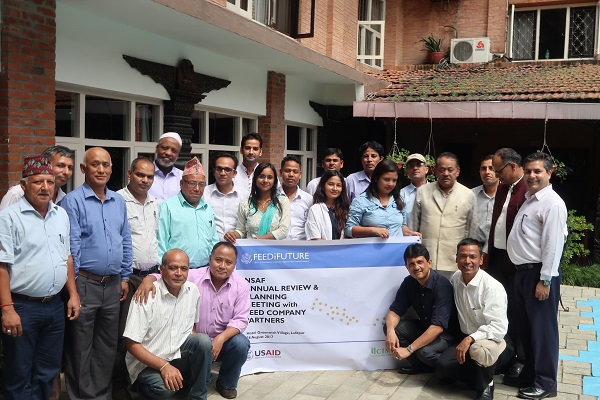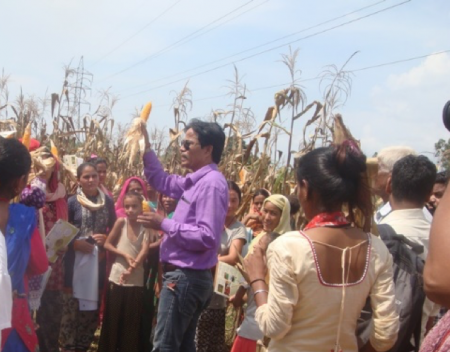KATHMANDU, Nepal (CIMMYT) – Members of the Nepal Seed and Fertilizer project (NSAF) met representatives from eleven seed companies at a recent meeting held in Kathmandu, Nepal. Representatives at the meeting discussed progress, challenges, lessons and implementation activities for 2016-17 and developed a work plan for 2107-18.
The discussion added to the Nepal Seed Vision 2013-2025 – a holistic, long-term vision for the country’s seed sector development – which calls for the local development of 40 hybrid vegetable, maize and rice seeds. The plan also encourages the development of products by the private sector and set a target to develop and promote an additional 20 hybrids by the end of 2025.
Nepal’s seed sector is dominated by an informal seed system where farmers produce, retain and exchange their own seeds for subsequent seasons planting. The formal seed system covers about 10 percent of seed transactions, and the country currently imports nearly all its hybrid maize and vegetable seed to meet the increasing demand for high-yielding crop varieties.
The NSAF, led by the International Maize and Wheat Improvement Center (CIMMYT) and funded by the United States Agency for International Development, will provide public and private seed companies with parental lines of hybrid maize and other crops that are uniquely adapted to Nepal’s environment. The project also assists local seed companies to have strong R&D as well as facilitates business and market opportunities.
Dyutiman Choudhary, NSAF project coordinator, highlighted the important role of the private sector in developing and disseminating NSAF products and services to farmers and other end users during the meeting. Yagya Prasad Giri , director for crop and horticulture research at the Nepal Agricultural Research Council (NARC), emphasized the importance of collaboration between public and private partners to bridge the demand and supply gap in quality seed production and marketing.
“Enhancing the capacity of local seed institutions is critical in order for the country to achieve its 2025 seed vision,” said Giri while opening the meeting.
Various departments of NARC also discussed progress under NSAF. In addition, CIMMYT and other NSAF representatives travelled to various districts in Nepal to evaluate project activities with various stakeholders.
The Nepal Seed and Fertilizer project (NSAF) is a five year flagship project under the U.S. government’s Feed the Future initiative. NSAF aims to increase agricultural productivity and household income by helping farmers access improved seeds together with best management practices.

 Capacity development
Capacity development 